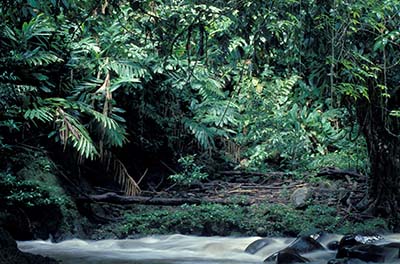Reducing Vulnerability to Climate Change in the Caribbean

Key Contact
Niels B. Holm-Nielsen
Start Date
End Date
Funding Amount
$ 48,928
Knowledge-receiving Countries
Summary
The Eastern Caribbean states of Dominica, Grenada, Saint Lucia, and Saint Vincent and the Grenadines (SVG) have worked with the World Bank, regional development partners, and donors to reduce their vulnerability to climate change. Activities have supported making infrastructure resilient to climate threats, modeling climate risks and hazards, and using risk information in development planning. In the context of the World Bank’s Regional Disaster Vulnerability Reduction Program (RDVRP) and Climate Investment Funds’ Pilot Program for Climate Resistance (PPCR), representatives from these countries and ministries helped to lead two regional workshops, Climate-Resilient Infrastructure and Caribbean Risk Assessment and Open-data Management, in January and February 2012. Workshop aims were to enhance the capacity of participants from Caribbean countries and partners in these areas, foster greater regional cooperation, and equip country officials to make better decisions on physical planning and development.
At the Climate-Resilient Infrastructure workshop, 64 officials from ministries and planning agencies, regional organizations, and donor institutions assembled in Saint Vincent and the Grenadines to learn about engineering models, landside risks, building codes and standards, and coastal zone management. At the second workshop, 41 officials from planning departments and donor agencies gathered in Trinidad and Tobago to learn how to model and map climate risks and hazards. They also learned how to use open-source tools and technologies such as Geonode – a centralized platform for managing and sharing geospatial data. The University of West Indies in St. Augustine was a key partner in the second workshop.
Positioned within a multi-year program of donor support on climate change, these workshops strengthened high-level dialogue and regional cooperation. Reflecting these gains, participants launched a Community of Practice to sustain learning on data management and proposed forming a regional association to sustain dialogue on infrastructure issues. Participants enhanced their capacity to share and apply information on climate-related risks and to develop resilient infrastructure, whether through advanced engineering designs or simple measures such as using more nails in roofs to resist higher winds. One participant from Saint Lucia expressed the general feeling of the participants: “[the infrastructure workshop] was the best workshop that I have ever attended, and there is a lot of knowledge that should be immediately applied to Caribbean construction practices.”
Officials have started to apply their new skills to guide development planning and projects, such as using a Geonode in Dominica to guide investments in emergency shelters. The workshop also accelerated progress on other regional programs in climate change and disaster risk reduction.
Beneficiaries / Participants
The Eastern Caribbean states of Dominica, Grenada, Saint Lucia, and Saint Vincent and the Grenadines (SVG) have collaborated with the World Bank and donors to reduce their vulnerability to climate change. Each country participates in the Bank’s Pilot Program for Climate Resistance (PPCR), while Grenada and Saint Vincent and the Grenadines participate in the Regional Disaster Vulnerability Reduction Program (RDVRP). Each has formulated a Strategic Program for Climate Resistance (SPCR), which supports developing climate-resilient infrastructure and sharing climatological, hydrological, and geo-spatial data to prepare for storms, flooding, drought and other climate threats. In addition, Grenada, Saint Lucia, and Saint Vincent and the Grenadines are piloting the use of Geonodes—centralized open source platforms for sharing geospatial data across agencies –to improve decision-making and development planning.
The global dimension of climate change requires greater regional cooperation in sharing infrastructure standards and practices and improving the management, sharing, and application of climate-related data. In this context, the governments of these states partnered with organizations under the PPCR and the RDVRP in leading two workshops. The Climate-Resilient infrastructure and Caribbean Risk Assessment and Open Geospatial Data Management workshops took place in January and February of 2012 in Saint Vincent and the Grenadines and Trinidad and Tobago, respectively. The goals were to increase the know-how and skills of country officials in these areas, strengthen networking and cooperation, and support officials in improving their policies and programs. Officials from the Caribbean region, the United States, England, and India led sessions, while participants came from ten Caribbean nations and regional agencies and their development partners. The South-South Facility financed the travel of participants from the four Eastern Caribbean states, while trust funds, donor agencies, and government resources financed the other participants’ costs.
Moving forward
Country officials and stakeholders have begun to apply their new know-how and skills to inform development plans and projects. For example, Dominica and other countries have used Geonodes to store and share geo-spatial data and guide infrastructure investments such as emergency shelters. Country officials continue to use the video “Building Climate Resilience: A Case for Caribbean Collaboration” which was developed for the workshop, to build awareness among colleagues and stakeholders of the importance of data sharing to inform building decisions.
Officials and stakeholders have used the CoP on data management as a platform for regional cooperation. The CoP has over 150 members, drawn from ministries, regional organizations, donor agencies, and other groups; it provides guides and resources, sponsors regular webinars, and provides a mechanism for coordinating trainings and knowledge sharing.
Momentum from the workshop helped to propel additional knowledge exchanges and regional projects. For example, three additional workshops were held in 2013 on managing and using data to improve decision-making.

 China
China Colombia
Colombia Denmark
Denmark India
India Indonesia
Indonesia Mexico
Mexico Russian Federation
Russian Federation Spain
Spain United Kingdom
United Kingdom